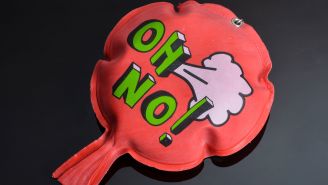Updated on September 16, 2022.
If you have been diagnosed with diverticular disease, your treatment will focus on keeping your symptoms in check and preventing complications. There are some steps you can take to avoid repeat episodes and manage your condition.
Treatment and prevention start with understanding the nature of diverticular disease and the factors that may aggravate it. Diverticular disease occurs when small pockets or pouches develop in the wall of the colon. This is known as diverticulosis and rarely causes pain or any other symptoms. Diverticulitis occurs if these pouches become inflamed or infected by bacteria in your stool. It is characterized by pain, typically on the left side of your colon, along with nausea, fever, and sometimes bleeding.
Exactly how or why diverticulosis turns into diverticulitis or diverticular bleeding is not fully understood, but different theories exist. Taken together, these theories help form the basis of your prevention plan, explains Akiva Marcus, MD, PhD, a gastroenterologist practicing at the Digestive Disease Center of the Palm Beaches and affiliated with JFK Medical Center, North Campus in West Palm Beach, Florida.
“Diverticulitis is a lifestyle disease,” he says. “You are not eating right, not exercising enough, smoking cigarettes, drinking too much alcohol and not enough water, are overweight—and all of this adds up to diverticular disease.”
The good news: You don’t have to suffer excessively from diverticular disease. Learn how to manage your condition and maintain an active lifestyle with the following eight-step plan.
Watch what you eat. For years it was thought that low-fiber diets play a role in aggravating diverticular disease. “The Western diet is low in fiber and high in animal fats, both of which are linked to harder stools that are more difficult to pass," explains Dr. Marcus.
Fiber is not the whole story though, he says. It is more likely that straining to pass stool causes pressure within the colon that leads to diverticular disease. Once the pouches form, bacteria from stool can get caught inside, where they can cause the pouch to tear or become inflamed or infected. For some people, increasing fiber intake could help prevent diverticulitis attacks but there is no guarantee.
If you are living with diverticular disease, your healthcare provider (HCP) may recommend that you eat a fiber-rich diet. The 2020–2025 Dietary Guidelines for Americans recommends adults get 14 grams of dietary fiber per 1,000 calories consumed. Keep in mind that 1/2 cup of high-fiber cereal contains 14 grams of fiber, one medium apple with skin has 4.8 grams, and one cup of cooked sweet potato has 6.3 grams. Other high-fiber foods include beans, legumes, lentils, and whole-wheat pasta. Ask your HCP if you should take a fiber supplement and which one is most appropriate for you.
In the past, HCPs advised people with diverticular disease to avoid eating seeds and nuts for fear that these tiny kernels could get lodged in the pouches and cause an episode, but this is no longer the case. “Many nuts are healthy sources of protein and good fats and there is no reason to avoid eating them if you have diverticular disease,” Marcus advises.
Drink more water. Water helps fiber—and stools—move through your system more easily so it’s important to drink plenty of fluid throughout the day. The amount of water you need depends on personal factors like how active you are, other medical conditions you may have, and any medications you’re taking. If you’re unsure about how much water you should be drinking, ask your HCP for guidance.
Maintain a healthy weight. Being overweight or obese is associated with a higher risk for diverticular disease, possibly due to inflammation and changes to the balance of good and bad bacteria in the gut.
Stop smoking. People who smoke cigarettes are more likely than nonsmokers to experience diverticulitis and more likely to have a complicated course, Marcus says. If you smoke, ask your HCP for advice on the best way to quit.
Move more. Lack of exercise can set the stage for diverticular disease. Follow the exercise guidelines set for healthy Americans. The federal government recommends getting at least 150 minutes of moderate-intensity exercise (such as playing tennis or riding a bike) with two bouts of muscle strengthening (like lifting weights and using resistance bands) each week.
Vigorous exercise, in particular, may lower your risk of diverticulitis, but make sure you get clearance from your HCP before making any radical changes to your physical activity regimen, Marcus cautions.
Curb alcohol intake. If you have diverticulosis and you drink too much alcohol, your risk of diverticulitis may be two to three times greater than that in the general population. Be mindful of how much alcohol you consume and drink in moderation. That means no more than one drink per day for women or two daily drinks for men.
Stay regular. Having regular bowel movements each day with no straining can keep your colon healthy and help prevent diverticulitis episodes. In addition to eating more fiber, drinking more water and getting regular exercise can help with regularity.
Know when to seek help. “If you have a history of diverticular disease, call your doctor the minute you feel an attack coming on,” Marcus says. “Your doctor can prescribe antibiotics and try to get ahead of any severe complications that could require surgery.”
Bonus: Marcus points out that the lifestyle adjustments that may help prevent diverticulitis could also help prevent colon cancer.







